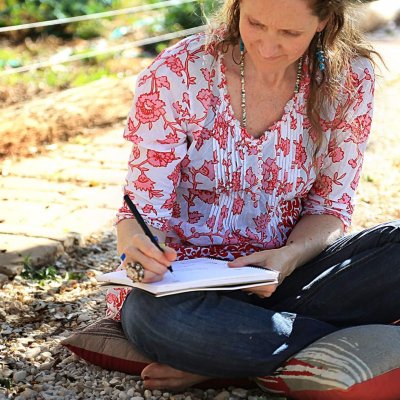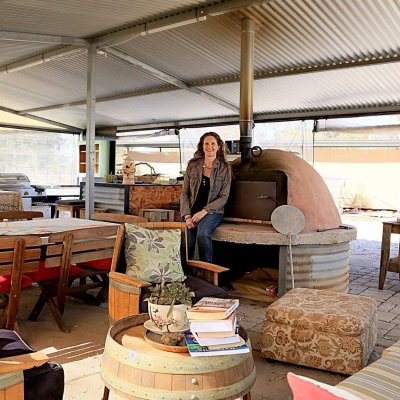Thriver. Healer. Evolver. That’s one super-positive job title, right there. Based near Lightning Ridge in remote New South Wales, Rebel Black is an avid, self-confessed furniture collector, doer-upper and place-finder for a myriad of restored treasures. She’s also a passionate supporter of rural women and is the founder of The Rural Woman – a business, a community and a supportive eco-system of rural women from around the world, connecting, learning and discovering together on the topics that matter to them.
Sharing a courageous and empowering account of her own healing journey, Rebel speaks candidly about a time when she was concerned for her own health and safety. Upon experiencing depression and being confronted with the very real potential for self-harm, in that moment, she made the life-changing decision to call her mum – reinforcing to anyone experiencing similar challenges that reaching out to a support person “…was the best thing I could have done”.
When asked what concerned her about the health, safety and wellbeing of those in rural industries and communities, Rebel again cuts straight to the heart of the matter – tackling health and safety from a psychological perspective. And she’s quite right when she says it’s difficult. It’s confronting. But asking direct questions about a person’s personal safety is the way to go. Mental, physical or psychological, she urges us to call it out. Speak, ask and challenge – but always in such a way that it’s delivered with curiosity and with empathy. Never judgey. Never critical. Rebel is a big believer that asking questions gets guards down far easier than making statements, and emphasises that safety is as much emotional as it is physical, which is precisely why ‘safety conversations’ can have so much impact.
How would you describe yourself in three words?
Thriving. Healing. Evolving.
Tell us something interesting about yourself...
I love doing old things up, like collecting furniture and then finding ‘spaces’ for it to go, which is why I now have 3 caravans and a tent which have lovely furniture treasures in them. Also why I’m on the hunt for my next project!
What achievements are you most proud of?
What makes you truly happy?
The beautiful moments when I’m fully present with what is… that’s the most delicious feeling!
What do you love the most about being a rural woman?
The unique perspective that geographic isolation gifts us with. My rural experiences have shaped me in ways that aren’t available to people who have only ever lived a metropolitan life.
Tell us about a time when you felt worried about your own or someone else’s health, safety or wellbeing.
I have experienced depression a few times in my life. On one occasion, I called my Mum because I was concerned for my own safety and the harm I could be capable of doing to myself. It was the best thing I could have done.
What practical things did - or could - you or someone else do to prevent yourself or someone else from getting hurt?
One of the most difficult things to do is to confront someone when you are concerned for their safety – mental, physical or both. But one of the best things to do is ask direct questions of the person. Are you wanting to harm yourself? Are you making plans to take your life? If you have concerns, address them.
"Inviting a conversation about safety in general is a very powerful thing to do. ‘Do you feel safe?’ and ‘What do you need in order to feel safe?’ are great questions to ask of anyone."
Rebel Black, Lightning Ridge, New South Wales AU Tweet this
Is there a time, place or scenario when your partner or those you work or spend time with are more willing to make changes to the way the work is done, or are more open to making safer, healthier choices?
I don’t work in a physically demanding situations, but my husband does. He’s an opal miner and is incredibly safety conscious. So it helps to have full faith in the measures he takes to ensure his safety.
If you could give any advice to another rural woman about health, safety and/or wellbeing in rural industries and communities, about influencing change in business - or just in general - what would it be?
If you see something that makes you concerned for the safety of people – mental, physical or emotional – name it, speak to it, ask about it, challenge it. But always, approach with curiosity rather than judgement or criticism. I find asking a question first e.g. ‘why do you do that thing that way?’ will yield a far better outcome than making statements.
Is there anything else you'd like to share?
Safety isn’t just a physical thing – it’s emotional too, and the reclamation of our own safety can be a very personal journey. Inviting a conversation about safety in general is a very powerful thing to do. ‘Do you feel safe?’ and ‘What do you need in order to feel safe?’ are great questions to ask of anyone.



